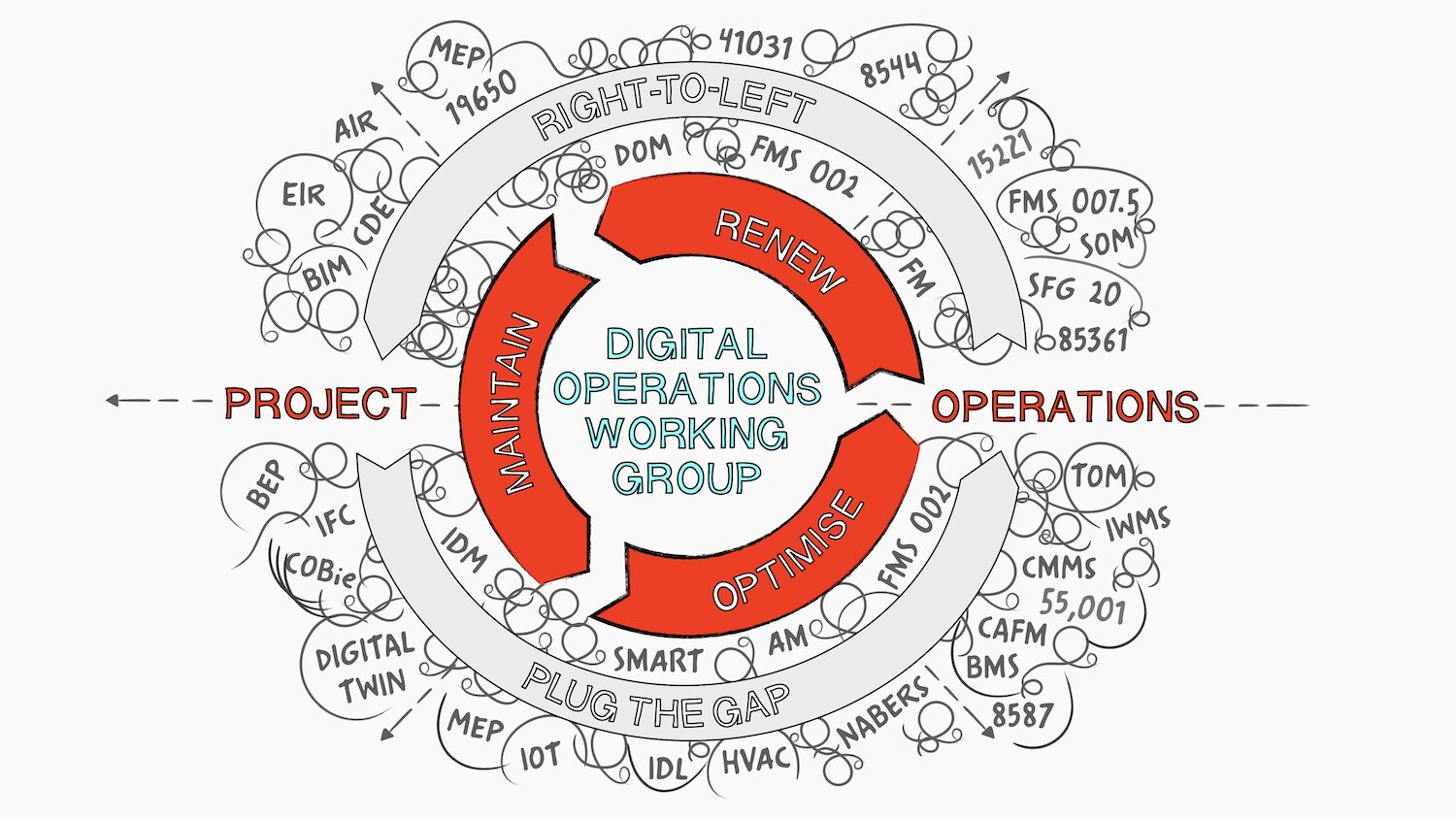
Mission-led major projects: lessons for information management
As the government evolves its approach to major projects – namely being mission-led – how should information managers respond? Lawrence Chapman at Sizewell C offers his insight.

The recent publication of Mission-led major projects by the Major Projects Association highlights how government strategy is evolving to tackle large-scale societal challenges through mission-driven delivery. By aligning industrial policy, infrastructure investment, and long-term national objectives, missions such as ‘Clean Energy Superpower’ and ‘Kickstarting Economic Growth’ signal a profound shift in how major projects are commissioned and governed.
For those working in information management and digital engineering, this report raises critical questions. How should data be structured to serve not just individual projects, but whole portfolios? How can we ensure interoperability across sectors? And how do we embed transparency and benefits measurement into our digital delivery practices? Here, I explore the lessons that mission-led thinking offers for information management across the major projects landscape.
Moving from projects to portfolios
Traditionally, information management has been project-centric, with success measured by localised delivery and compliance. A mission-led approach reframes this: projects are no longer isolated efforts but part of a collective portfolio delivering national goals. Information managers must therefore design frameworks that allow consistent data standards, taxonomies and reporting across projects and programmes. Without this consistency, portfolio-level analysis and decision-making become fragmented.
Breaking down silos
One of the strongest themes from the mission-led agenda is the need to break down silos between sectors, regions and delivery organisations. For information management, this means prioritising interoperability. Data structures, classification systems and exchange protocols must allow reuse across government, industry and regulators. Open standards such as IFC and Uniclass become more than technical preferences – they are enablers of system-wide collaboration.
Building internal capability
Several contributors to the debate warned of an overreliance on external consultants, which risks hollowing out institutional memory. This applies equally to information management. Without in-house capability, organisations are unable to retain knowledge, enforce standards or learn from past programmes. Building permanent internal information management teams ensures that lessons, processes and data governance practices are carried forward rather than lost at the end of each project cycle.
Major UK infrastructure projects, such as Thames Tideway and HS2, have set a benchmark by investing heavily in internal digital engineering and information management capabilities. Both organisations established dedicated teams to drive the adoption of open standards, streamline data governance and foster a culture of digital excellence. Their experience demonstrates that building robust in-house expertise is essential for supporting cross-project collaboration, ensuring data quality and enabling innovative practices to scale across complex portfolios.
Systems leadership and integration
The report draws lessons from NASA’s Apollo programme, emphasising systems-based leadership and matrix management. Applied to information management, this underlines the importance of federated model strategies, integrated data flows and transparent reporting tools. Dashboards and visualisations must span contracts, suppliers and regulators to give leaders the holistic view required for mission delivery.
Geospatial and digital twins
Missions cut across sectors and geographies. Information managers should therefore invest in geospatial integration – linking BIM models with GIS, asset data and national digital twins. This spatial dimension enables stakeholders to visualise how projects integrate with broader infrastructure and regional development, uncovering insights that a single-project lens would otherwise overlook.
Following the publication of the Williams-Shapps Plan for Rail, the Department for Transport took a proactive step by inviting the digital engineering teams from Northern Powerhouse Rail, HS2 and the TransPennine Route Upgrade to develop a collaborative model of the integrated programme of works. This initiative aimed to ensure that data structures, standards and digital tools would support seamless coordination and transparency across significant rail investments, reflecting the mission-led approach to information management.
Stakeholder engagement and transparency
Mission-led projects must earn and retain public trust. That requires clear, accessible and transparent information outputs: not just technical models, but data visualisations, dashboards and plain-language summaries. Information managers play a pivotal role in ensuring that accurate, validated and timely information is available to citizens, communities and decision-makers alike.
Supply chain resilience
The global supply landscape is fragile and interconnected. Effective information management must therefore extend to supply chains, capturing provenance, availability and constraints for critical resources. Tools such as material passports and centralised registers can help anticipate risks, improve resilience and provide assurance to government and industry leaders.
Benefits realisation through data
Perhaps the most striking change is the demand for projects to report against outcomes, not only outputs. Information managers must align data frameworks to capture metrics such as carbon savings, productivity improvements and social value. Embedding these data points in project information models ensures that benefits can be measured, compared and communicated at the portfolio level.
Mission-based information management
The Major Projects Association’s Mission-led major projects report reinforces that mission-based government requires mission-based information management. The discipline must evolve from a compliance-driven function to a portfolio enabler – supporting system-wide collaboration, long-term knowledge retention and transparent benefits reporting.
Information managers have a unique opportunity to help major projects deliver more than physical assets: they can deliver the data, insights and trust that underpin national missions.
The opinions expressed are the author’s own and do not necessarily reflect the views of his employer.
Keep up to date with DC+: sign up for the midweek newsletter.







